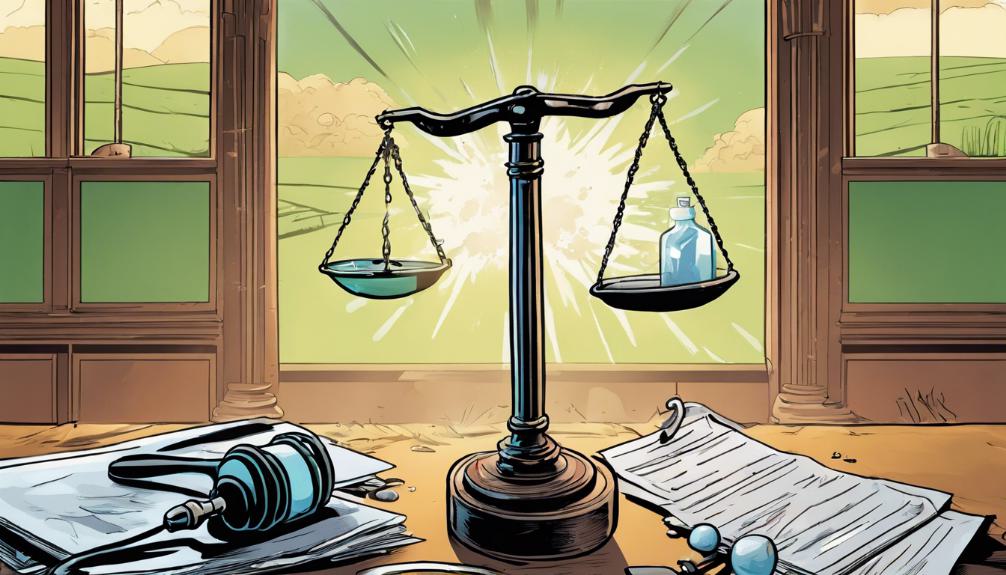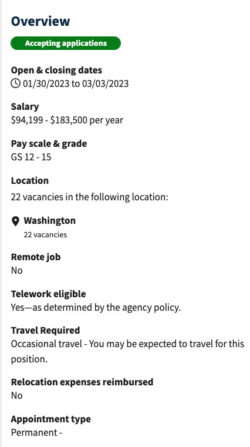Glyfos Weed Killer Lawsuit: Were You or A Loved One Diagnosed With Non-Hodgkins Lymphoma
In recent developments, the Glyfos weed killer lawsuit has emerged as a pivotal legal battle, drawing attention to the potential health risks associated with glyphosate-based herbicides. Individuals diagnosed with Non-Hodgkin's Lymphoma after exposure to these products are now seeking accountability and compensation, raising critical questions about consumer safety and corporate responsibility. As this litigation unfolds, it is essential to understand the implications for those affected and the broader regulatory landscape governing herbicide usage. This discussion aims to explore the intersection of health, law, and environmental safety, inviting further exploration into how these lawsuits could reshape industry practices and public health policies.

Background and Overview
The Glyfos Weed Killer lawsuit stems from allegations that exposure to the herbicide's active ingredient, glyphosate, is linked to an increased risk of developing Non-Hodgkin's Lymphoma in individuals who used or came into contact with the product. This legal action targets various formulations of Glyfos, including Glyfos Herbicide, Glyfos Ready-To-Use 0.96% Weed & Grass Killer, Glyfos Muc 62%, and Glyfos Concentrate 27% Weed & Grass Killer. Those who have been diagnosed with Non-Hodgkin Lymphoma following exposure to these products may be eligible for compensation. Victims are advised to seek a case review with an injury lawyer to explore the potential for filing a lawsuit or settlement claim, underscoring the importance of medical consultation for any health issues or complications tied to Glyfos exposure.
Glyphosate and Cancer Risk

Significantly, research has linked glyphosate, a widely used herbicide ingredient, to an elevated risk of cancer, particularly Non-Hodgkin Lymphoma. This association has sparked a global debate regarding the safety of glyphosate-based products and their long-term health implications. Various scientific studies and reviews have examined the carcinogenic potential of glyphosate, leading to mixed conclusions. However, the International Agency for Research on Cancer (IARC), a branch of the World Health Organization (WHO), classified glyphosate as "probably carcinogenic to humans" based on evidence from occupational exposure studies. This classification has fueled lawsuits and regulatory scrutiny worldwide, as individuals and advocates seek accountability from manufacturers and regulatory bodies for potential health risks associated with glyphosate exposure.
Glyfos Products Under Scrutiny

In recent times, specific Glyfos products have come under intense investigation due to their potential link to Non-Hodgkin Lymphoma, following widespread concerns over glyphosate exposure. Among the products scrutinized are Glyfos, Glyfos Herbicide, Glyfos Ready-To-Use 0.96% Weed & Grass Killer, Glyfos Muc 62%, and Glyfos Concentrate 27% Weed & Grass Killer. This scrutiny arises from scientific and public health inquiries into the safety of glyphosate, a widely used herbicide ingredient alleged to increase the risk of developing certain types of cancer. Regulatory bodies and research institutions are rigorously examining these claims to determine the veracity of the link between glyphosate exposure and the onset of Non-Hodgkin Lymphoma, particularly among individuals with prolonged use of or exposure to these Glyfos products.
Compensation and Eligibility

Individuals diagnosed with Non-Hodgkin Lymphoma following exposure to Glyfos weed killer may be entitled to financial compensation. This eligibility extends to those who have been in contact with various formulations of the product, including Glyfos Herbicide and Glyfos Ready-To-Use 0.96% Weed & Grass Killer, among others. The basis for compensation relates directly to the diagnosis of this specific cancer after exposure to the herbicide. It is crucial for affected parties to seek a thorough review of their case by an injury lawyer specialized in such claims. This legal professional can provide a comprehensive evaluation of the individual's eligibility based on the details of their exposure and subsequent health issues. Compensation may cover medical expenses, lost wages, and other damages related to the diagnosis.
Initiating a Lawsuit

How does one begin the process of filing a lawsuit against the manufacturers of Glyfos for Non-Hodgkin Lymphoma claims? The initial step involves reaching out to a seasoned injury lawyer with expertise in drug-related litigation. A detailed case review is paramount, where the attorney assesses the extent of exposure to Glyfos and its direct correlation with the Non-Hodgkin Lymphoma diagnosis. Documentation, including medical records, proof of Glyfos purchase or use, and any other relevant evidence, must be meticulously gathered. This preparatory phase is critical for establishing a strong foundation for the lawsuit. The attorney then files a legal claim on behalf of the affected individual, navigating through the complexities of the legal system to pursue rightful compensation for damages incurred.
Other Drug Injury Cases

Beyond the Glyfos weed killer lawsuits, numerous other drug injury cases have emerged, spotlighting the potential health risks associated with various pharmaceuticals and medical products. These cases often involve allegations that drugs, like Prilosec, Nexium, Tylenol, Belviq, and Elmiron, have caused serious health issues ranging from chronic kidney disease to cancer. Legal actions against pharmaceutical companies are not only about seeking financial compensation for the affected individuals but also about holding these corporations accountable for their products' safety. The complexity of these cases often lies in proving the direct link between the drug and the injury, necessitating thorough investigations and expert testimonies. As these legal battles unfold, they highlight the critical importance of drug safety and the need for rigorous testing and transparency in the pharmaceutical industry.
Medical Device Litigations

Medical device litigations have become increasingly prominent as patients seek redress for injuries sustained from faulty or dangerous medical products. These lawsuits typically concern devices intended to improve patient health but have instead caused significant harm or complications. Examples include transvaginal mesh, which has been linked to severe pain and organ damage; hernia mesh, associated with infection and hernia recurrence; hip replacements, leading to metallosis and device failure; Allergan breast implants, implicated in a rare form of cancer; and the Philips CPAP & ventilator recall, due to potential toxic exposure from degrading foam. For victims, these litigations offer a pathway to compensation for medical expenses, suffering, and loss of quality of life, highlighting the critical balance between medical innovation and patient safety.
Exploring Other Injury Lawsuits

In addition to lawsuits involving medical devices, there are numerous other injury-related legal actions that address the harmful effects of various products and substances on consumers. These cases span a wide array of issues, from exposure to hazardous chemicals to the use of everyday household items that have been found to pose significant health risks. Notably, litigation concerning talcum powder, Roundup herbicide, Paraquat, asbestos, and the development of mesothelioma have garnered substantial attention. Each of these lawsuits underscores the critical importance of holding manufacturers accountable for the safety of their products. Consumers harmed by these substances may be eligible for compensation, and are advised to seek legal counsel to discuss their rights and potential claims.
Frequently Asked Questions
How Does Non-Hodgkin Lymphoma Diagnosis Specifically Relate to the Use of Glyfos Herbicide, as Opposed to Other Lifestyle or Genetic Factors?
The specific relation between Non-Hodgkin Lymphoma (NHL) diagnosis and the use of Glyfos herbicide, as opposed to lifestyle or genetic factors, centers on the exposure to glyphosate, the active ingredient in Glyfos. Studies have indicated a potential link between glyphosate exposure and an increased risk of developing NHL. This has prompted investigations and lawsuits, asserting that the chemical's carcinogenic properties have directly contributed to the diagnosis of NHL in individuals exposed to Glyfos.
Are There Any Documented Cases or Studies That Directly Link Glyfos Products to Non-Hodgkin Lymphoma, and if So, What Are the Key Findings?
Documented cases and scientific studies have established a link between Glyphosate, the active ingredient in Glyfos products, and Non-Hodgkin Lymphoma. Investigations into various Glyfos formulations, including Glyfos Herbicide and Glyfos Concentrate, have highlighted potential health risks. Individuals diagnosed with Non-Hodgkin Lymphoma subsequent to Glyphosate exposure may be eligible for compensation. Consulting with an injury lawyer for a case review is advised for those affected. Medical consultation is recommended for any health concerns or complications.
Can Individuals Who Were Indirectly Exposed to Glyfos, Such as Through Environmental Runoff or by Living Near Treated Areas, Also Be Eligible for Compensation?
Individuals indirectly exposed to Glyfos, including environmental runoff or proximity to treated areas, may also be eligible for compensation, contingent upon establishing a link between their Non-Hodgkin Lymphoma diagnosis and the exposure. It is advised to consult with a specialized injury lawyer for a comprehensive case review. This process is crucial for determining the potential for a lawsuit or settlement claim based on the specifics of the exposure and subsequent health issues.
What Are the Long-Term Health Monitoring Recommendations for Individuals Who Have Used Glyfos but Have Not Been Diagnosed With Any Health Issues?
For individuals who have utilized Glyfos but have not been diagnosed with any health issues, it is advisable to engage in regular health monitoring. This includes annual medical check-ups, which should encompass comprehensive blood tests and, if recommended by a healthcare provider, specific screenings for Non-Hodgkin Lymphoma. Promptly reporting any new or worsening symptoms to a healthcare professional is crucial for early detection and intervention. Consulting with a specialist may also be beneficial for personalized advice.
How Are Settlements or Compensations Calculated in Glyfos Weed Killer Lawsuits, and What Factors Influence the Amount an Individual Can Receive?
Settlements or compensations in lawsuits related to herbicide exposure, such as those involving Glyfos, are typically determined by several factors. These include the severity and extent of the diagnosed health condition, documented evidence of exposure, the duration of exposure, potential negligence on the part of the manufacturer, and the impact of the condition on the plaintiff's quality of life. Legal professionals assess these elements to calculate the appropriate compensation amount for affected individuals.

This post has been generated by AI and was not reviewed by editors. This is Not legal advice. Please consult with an attorney.




